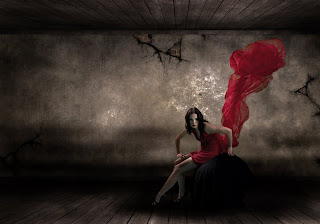Lighting
Make try outs changing lights within the same picture. Try different apertures, shooting speed or experiment in post-production. It´s important to master the light, avoid unwanted shadows, and be able to re-create a certain kind of light with filters, reflectors or lamps: play around until you find the spot on lighting you were looking for.
Move in the space
You might have prepared and set up the entire scene according to plans; although, leave room for improvement. While shooting, move around in the space, find new and different angles: experiment!
Break the Rules
At one point you need to forget all the technicalities and all the theory you have learned. They are good for initial inspirations or to know how to get the exact effect from your pictures; but remember not to get stuck with them. Experiment, discover and try out, the best ideas and shoots always come by “accidental” trials.
Location
Before shooting, once again, be prepared. Choosing the desired location in advance is of outmost importance. Walk around in the space; study the colours and objects/buildings in the area. Try to picture how you would like the models to pose, what should they transmit with their looks and poses. Focus on details: a stone, a column, a traffic light, whatever can provide a specific imprint in your photo.
Vision
Know where you are heading to. Whenever you start a photo shoot, be prepared: you must have your own vision on how you want the final outcome to be. Plan, study and revisit, but then, leave room for changes, new inspirations or improvements.
Get Inspired
Inspiration is essential in order to produce awesome pictures. Study the work of other photographers, share your ideas and brainstorm with others. Pay attention to details and every-day light effects, colours and environments.
Models
Models should be carefully selected by you. Make sure they possess traits and qualities that would enhance your photos. The model itself can change the entire result of your shoot, therefore is crucial to find models that reflect your vision.
Harmony
Each picture should have its purpose. All the elements and colours in a picture should make sense and be in harmony with each other. Strong contrasts are also good when voluntary searched and with some kind of meaning within the photograph.
Equipment
The right equipment should always be ready and at disposal. Better bringing some unnecessary tools than finding yourself in trouble because you realize you forgot that special lenses that would have been awesome right in that moment.
Direct
You need to communicate to your co-workers and models, what exactly is the final effect that you want to achieve. Let them participate into your vision and planning. Do not be afraid of asking precisely what you want. As a fashion photographer you are the director of the stage. Those working with you will be able to help you better and be more focused if they know what the final outcome you want to achieve is.
Keep confidence at all times, if you show your stress and uncertainty, your co-workers and models will pick it right away, resulting in a poor outcome.


















No comments:
Post a Comment